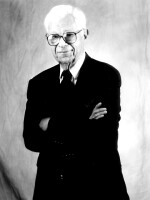MELISSA BLOCK, Host:
Russia only recently became a topic of discussion in the U.S. presidential race. The candidates spend far more time talking about Iraqi prime minister Nouri al-Maliki, even French president Nicolas Sarkozy, than they do talking about Russian president Dmitry Medvedev or Prime Minister Vladimir Putin.
NPR senior news analyst Daniel Schorr says, that's changing.
DANIEL SCHORR: The negotiation between the Putin-Medvedev regime and the next American president can be said to have started. Senator Barack Obama, in his Berlin speech last week, enunciated what might be called the invitation to the waltz. He said we must reject the Cold War mindset of the past and resolve to work with Russia where we can, to stand up for our own values when we must, and seek a partnership that extends across this entire continent.
As though responding to that call, Russia has now come up with a proposal for a new and expansive international organization. It would go far beyond the Organization for Security and Cooperation in Europe, of which Russia is a member, and NATO, which Russia regards as a Cold War instrument that helped to bring down the Soviet Union.
The new organization would be almost universal, including China and India. The proposal has been submitted to NATO in Brussels by the Russian envoy, Dmitry Rogozin, an ardent Russian nationalist. The plan foresees a legally binding treaty document like the United Nations Charter, which in some respects it would appear to duplicate, perhaps to replace.
Rogozin said he's not asking for early action but for the opening of a dialogue around the world. It's not hard to see what motivates the men in the Kremlin. This would feature Russia in something like a new world order, restoring Russia's superpower status.
The Kremlin proposal may not get very far with the Western powers, but it would at least assure that Russia will play a big part in the global dialogue to come. This is Daniel Schorr. Transcript provided by NPR, Copyright NPR.






